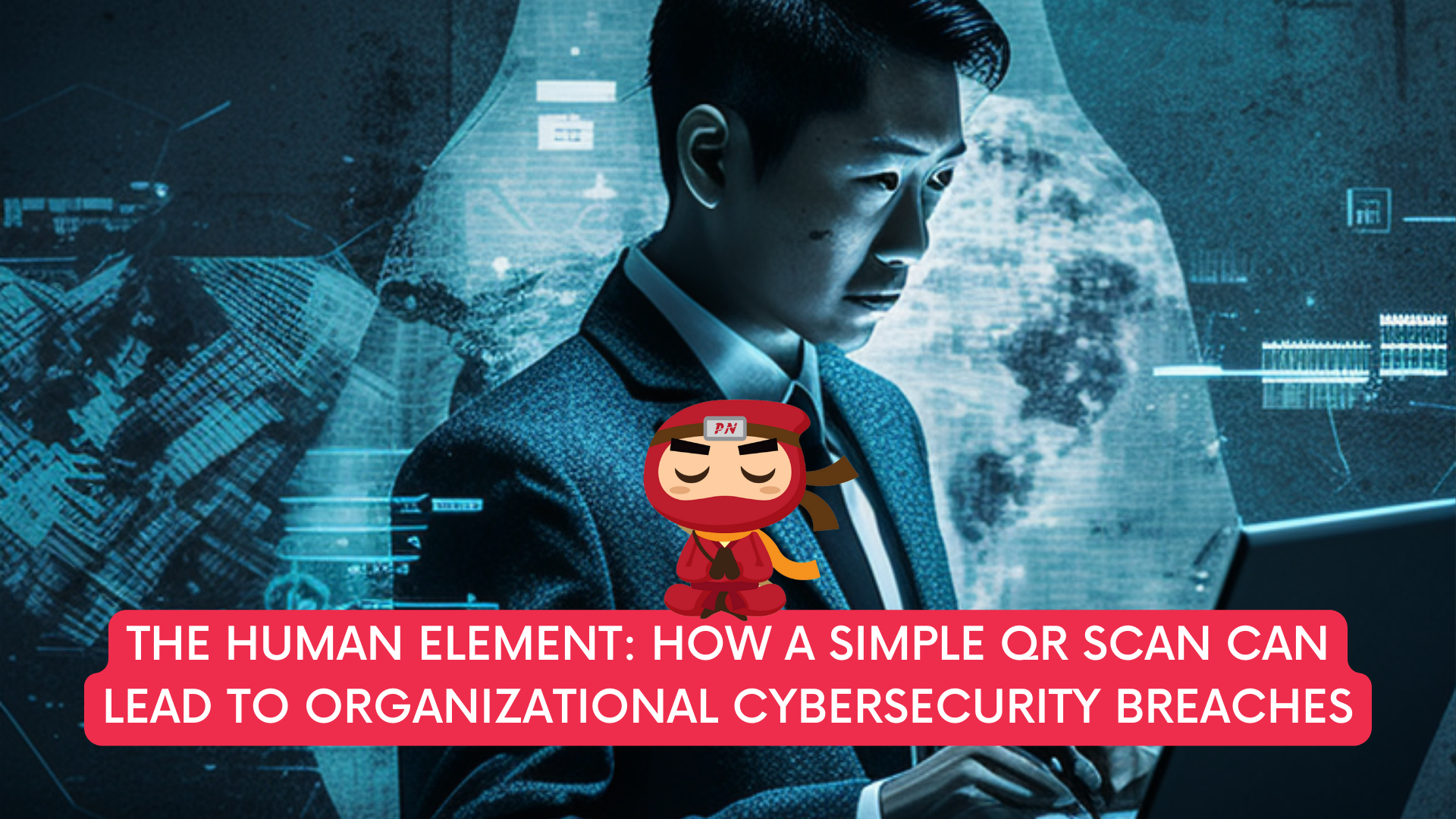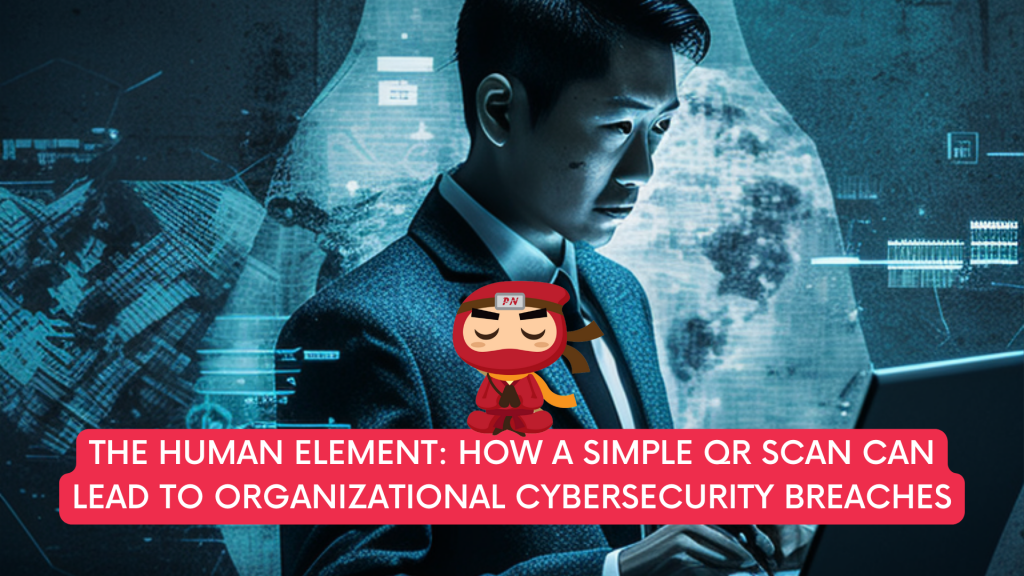KEEP IN TOUCH
Subscribe to our mailing list to get free tips on Data Protection and Cybersecurity updates weekly!







In an era where technology advances at an unprecedented pace, cybersecurity threats have evolved just as rapidly. A recent incident in Singapore highlights just how easily these threats can infiltrate unsuspecting victims and, by extension, potentially compromise the cybersecurity defenses of an entire organization.
A woman was enticed to scan a QR code at a bubble tea shop to complete a survey in exchange for a free cup of milk tea. The QR code led her to download a seemingly harmless third-party app onto her Android phone. Unbeknownst to her, the app was infected with malware. While she was sleeping, the scammers behind the scheme took control of her phone and stole $20,000 from her bank account.
While this incident is a stark reminder for individuals to be vigilant, it also underscores a critical point for organizations: their cybersecurity is only as strong as their weakest link, which in many cases is the human element.
Enter the role of a Data Protection Officer (DPO). The DPO, often an unsung hero in an organization, plays a vital part in mitigating such risks. They are responsible for ensuring the organization’s data protection policies are up to date and that employees are educated about best practices in data security. By conducting regular training and audits, a DPO can help create a culture of security awareness that makes every employee an active participant in the organization’s cybersecurity defenses.

In an organization, employees often have access to sensitive data, ranging from internal documents to customer information. If an employee falls victim to such a scam, it’s not just their personal data at risk. The malware that infiltrated their device could potentially gain access to the organization’s network, leading to a data breach with far-reaching consequences.
The malicious QR code scan demonstrates that cyber threats are not limited to sophisticated hacking methods. In fact, they often exploit the simplest of human actions: the trust we place in scanning a QR code or downloading an app. If an employee were to scan such a QR code using a device that also contains sensitive organizational data, the results could be devastating.
Scammers are becoming increasingly innovative, deploying malware through methods like website pop-up banners or bogus QR codes placed outside food and beverage establishments. The camouflage of these malicious tools makes it challenging for consumers to distinguish between legitimate and malevolent QR codes.
The repercussions for organizations can be severe. A breach of sensitive data could lead to regulatory penalties, reputational damage, and significant financial loss. It could also compromise the trust of customers, employees, and stakeholders.
This incident serves as a wake-up call for organizations to reinforce their cybersecurity measures, particularly regarding employee awareness and training. Data Protection Officers can play a significant role in this endeavor, ensuring that best practices are embedded in the organization’s culture. By educating employees about potential threats like this one, organizations can mitigate risks. Employees should be advised to download apps only from trusted sources, verify the authenticity of QR codes, and be skeptical of too-good-to-be-true offers.
In the fight against cyber threats, technology plays a crucial role, but human awareness and vigilance are equally important. After all, a chain is only as strong as its weakest link – and in the world of cybersecurity, that link is often the human element.

Your appointed DPO can work with you on your PDPA compliance, ensuring that there will be policies in place to make sure that the handling of personal data is PDPA compliant. This includes promptly responding to the PDPC with their queries to expedite the investigations and prevent a harsher penalty from the Commission.
A Data Protection Officer (DPO) oversees data protection responsibilities and ensures that organisations comply with the Personal Data Protection Act (PDPA). Furthermore, every Organization’s DPO should be able to curb any instances of PDPA noncompliance as it is the officer responsible for maintaining the positive posture of an organisation’s cybersecurity.
DPOs complement organisations’ efforts to ensure that the organisation’s methods of collecting personal data comply with the PDPA. It also ensures that policies are set in place to make sure that there will be no instances of data breaches in the future.
Don’t wait any longer to ensure your organisation is PDPA compliant. Take our free 3-minute PDPA Compliance Self-audit checklist now, the same “secret weapon” used by our clients to keep them on track. Upon completion, we will send you the results so you can take the necessary action to protect your customers’ data. Complete the free assessment checklist today and take the first step towards protecting your customers’ personal data.